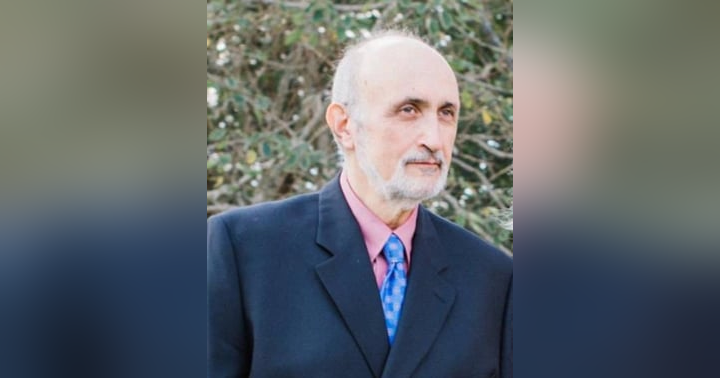
Let's delve into the transformative role of faith in addiction recovery, inspired by my recent conversation with Tanya Gioia. Tanya shared her personal journey and insights, highlighting the power of spiritual growth, community support, and positive self-talk in overcoming challenges and finding hope amidst the complexities of addiction. This article aims to expand on those concepts, providing a deeper understanding of how faith can be a guiding light on the path to recovery. Make sure to also check out the full episode with Tanya Gioia on "Love, Addiction, and Finding Freedom" here.
The Intersection of Faith and Addiction Recovery
Addiction is a multifaceted issue, impacting individuals physically, emotionally, and spiritually. Traditional approaches to recovery often focus on the physical and psychological aspects, such as detoxification, therapy, and support groups. However, the spiritual dimension is increasingly recognized as a vital component of long-term healing. Faith, in this context, doesn't necessarily refer to a specific religion but rather to a belief in something greater than oneself, a source of hope, strength, and purpose.
For many, faith provides a foundation of values and principles that can guide their recovery journey. It offers a sense of meaning and purpose that can help individuals find the strength to confront their addiction and make positive changes. Faith-based approaches often emphasize forgiveness, compassion, and the importance of personal responsibility, all of which are crucial for healing and growth.
Moreover, faith can provide a sense of community and belonging. Religious institutions and faith-based organizations often offer support groups, counseling services, and other resources that can help individuals connect with others who share similar beliefs and experiences. This sense of community can be invaluable in combating the isolation and loneliness that often accompany addiction.
Tanya Gioia's Personal Journey: A Story of Love, Addiction, and Faith
Tanya Gioia's story is a testament to the power of faith in navigating the challenges of addiction. As the wife of a recovering addict, Tanya experienced firsthand the devastation that addiction can inflict on families. However, through her faith, she found the strength to support her husband, set healthy boundaries, and ultimately reclaim her own life.
Tanya's journey began with a deep love for her husband and a desire to help him overcome his addiction. However, she quickly realized that she couldn't do it alone. She turned to her faith for guidance and support, finding solace in prayer, scripture, and the encouragement of her faith community.
Through her experiences, Tanya learned the importance of setting boundaries and prioritizing her own well-being. She realized that she couldn't control her husband's addiction, but she could control her own actions and reactions. With the support of her faith community, she began to establish healthy boundaries, communicate her needs, and take steps to protect herself and her children.
Tanya's journey also led her to a deeper understanding of codependency, a pattern of behavior in which individuals become overly focused on the needs of others, often at the expense of their own well-being. Through therapy and spiritual growth, Tanya learned to break free from codependent patterns and reclaim her own identity.
Understanding Codependency: How Faith Can Break the Cycle
Codependency is a common issue in relationships affected by addiction. It often manifests as an excessive need to control or fix the addict's behavior, leading to feelings of resentment, exhaustion, and despair. Faith can play a crucial role in breaking the cycle of codependency by providing individuals with a new perspective and a source of strength.
Faith-based approaches to codependency often emphasize the importance of surrendering control and trusting in a higher power. This can be particularly challenging for codependents, who are accustomed to taking charge and trying to manage every aspect of their loved one's life. However, by relinquishing control and placing their trust in God, they can begin to release the burden of responsibility and focus on their own healing.
Moreover, faith can help codependents develop a healthier sense of self-worth. Often, codependents derive their self-esteem from their ability to care for others, neglecting their own needs and desires. Faith can remind them that they are inherently valuable and worthy of love, regardless of their ability to fix or control the addict's behavior. The books "Wounded by Shame, Healed by Grace" by John Van Vonderen and "Boundaries" by Dr. Henry Cloud & Dr. John Townsend, mentioned by Tanya in the episode, are excellent resources for anyone struggling with codependency.
The Power of Community and Spiritual Growth
Addiction can be an isolating experience, leaving individuals feeling ashamed, alone, and disconnected from others. Community and spiritual growth can provide a much-needed sense of belonging and support, helping individuals to overcome feelings of isolation and connect with others who understand their struggles. Tanya also mentioned "Celebrate Recovery", a Christ-centered recovery program that exemplifies the power of community.
Faith-based communities often offer a safe and supportive environment where individuals can share their experiences, receive encouragement, and build meaningful relationships. These communities can provide a sense of accountability, helping individuals stay on track with their recovery goals and avoid relapse.
Spiritual growth is also an essential component of addiction recovery. Through prayer, meditation, and scripture study, individuals can deepen their connection with God and cultivate a sense of inner peace and strength. Spiritual practices can help individuals to develop a greater understanding of themselves, their values, and their purpose in life.
Setting Boundaries and Reclaiming Self-Worth Through Faith
Setting boundaries is crucial for individuals affected by addiction, both for their own well-being and for the addict's recovery. Boundaries are limits that define what is acceptable and unacceptable behavior in a relationship. They help to protect individuals from being taken advantage of, manipulated, or abused.
Faith can provide a framework for setting healthy boundaries. It can remind individuals that they are worthy of respect and that they have the right to protect themselves from harm. Faith can also provide the courage to assert boundaries, even when it is difficult or uncomfortable. As Tanya emphasized, reclaiming self-worth is a vital step in this process.
Moreover, faith can help individuals to forgive themselves for past mistakes and to let go of resentment and anger. Forgiveness is essential for healing and moving forward. By forgiving themselves and others, individuals can release the emotional baggage that is holding them back and create space for new, healthier relationships.
Positive Self-Talk: A Cornerstone of Faith-Based Recovery
Positive self-talk is a powerful tool for building self-esteem, overcoming negative thoughts, and achieving personal goals. In the context of addiction recovery, positive self-talk can help individuals to challenge negative beliefs about themselves and their ability to recover. The book "Let Them" by Mel Robbins, as suggested by Tanya, can be a great tool to challenge negative thoughts.
Faith can play a crucial role in fostering positive self-talk. It can remind individuals that they are created in God's image and that they are loved and valued unconditionally. Faith can also provide a source of hope and encouragement, helping individuals to believe in themselves and their ability to overcome challenges.
Positive affirmations, based on scripture or spiritual principles, can be a powerful way to reinforce positive self-talk. By repeating these affirmations regularly, individuals can reprogram their minds and develop a more positive and empowering self-image.
Navigating Family Dynamics: Faith-Based Support for Children
Addiction can have a profound impact on families, particularly children. Children of addicts often experience confusion, fear, and anxiety. They may also feel responsible for their parent's addiction or guilty about their own feelings.
Faith-based support can provide a safe and nurturing environment for children affected by addiction. Religious institutions and faith-based organizations often offer programs and resources specifically designed to help children cope with the challenges of having an addicted parent. Tanya recommended the Betty Ford Children's Program as a resource for families. Another useful resource she mentioned is "Beamer the Lightbulb Boy", a children's book on understanding emotions.
These programs can help children to understand that they are not alone, that their feelings are valid, and that they are not responsible for their parent's addiction. They can also provide children with tools for coping with stress, communicating their needs, and setting healthy boundaries.
Moreover, faith can provide children with a sense of hope and resilience. It can remind them that God loves them and that they are not forgotten. Faith can also empower children to believe in themselves and their ability to overcome challenges.
Therapy, EMDR, and Spiritual Healing: A Holistic Approach
While faith can be a powerful tool for addiction recovery, it is not a substitute for professional help. Therapy, particularly trauma-informed therapy such as EMDR (Eye Movement Desensitization and Reprocessing), can be essential for addressing underlying emotional issues that may be contributing to addiction.
EMDR is a type of therapy that helps individuals to process traumatic memories and reduce the emotional distress associated with those memories. It can be particularly helpful for individuals who have experienced childhood trauma, abuse, or neglect.
Spiritual healing, on the other hand, focuses on addressing the spiritual wounds that may be contributing to addiction. This can involve prayer, meditation, spiritual counseling, or other practices that promote inner peace, forgiveness, and reconciliation.
A holistic approach to addiction recovery integrates faith, therapy, and spiritual healing to address the physical, emotional, and spiritual dimensions of addiction. This approach recognizes that healing is a process that requires attention to all aspects of the individual.
Reclaiming Your Identity and Voice: A Message for Women
For women, addiction can be particularly isolating and stigmatizing. Women often face unique challenges in recovery, such as societal expectations, gender roles, and the fear of judgment. In the episode, Tanya passionately discussed why women need to reclaim their identity and voice, especially when dealing with addiction in their families. She also mentioned "Jesus, Sex, and the Conversation the Church Forgot" by Mo Isom as a resource.
Faith can empower women to reclaim their identity and voice. It can remind them that they are strong, capable, and worthy of respect. Faith can also provide the courage to speak out about their experiences, challenge societal norms, and advocate for change.
Moreover, faith can help women to connect with other women who share similar experiences. Women's faith-based groups can provide a safe and supportive environment where women can share their stories, receive encouragement, and build meaningful relationships.
Tanya Gioia's Resources: Faith Over Addiction Podcast and Coaching Programs
Tanya Gioia is dedicated to helping women support loved ones battling addiction. Drawing from her personal experience and her own journey of healing from codependency, Tanya empowers women to rediscover their identity, set healthy boundaries, and build resilient families.
She is the host of the Faith Over Addiction podcast, where she shares her insights and interviews other experts in the field of addiction recovery. She also offers coaching programs designed to help women navigate the challenges of addiction and reclaim their own lives.
Tanya's resources are a valuable source of support and guidance for women who are struggling with addiction in their families. Her compassionate and practical approach can help women to find hope, healing, and freedom.
Resources Mentioned: Books, Programs, and Support Systems
Throughout this blog post and in the podcast episode with Tanya Gioia, several resources were mentioned that can be helpful for individuals and families affected by addiction. These resources include:
- Tanya’s website: https://www.tanyagioia.com/
- Faith Over Addiction Podcast – Hosted by Tanya Gioia
- Wounded by Shame, Healed by Grace – Book by John Van Vonderen
- Boundaries – Book by Dr. Henry Cloud & Dr. John Townsend
- Let Them – Book by Mel Robbins
- Betty Ford Children's Program – Resources for families impacted by addiction
- Celebrate Recovery – Christ-centered recovery program
- Beamer the Lightbulb Boy – Children's book on understanding emotions
- Jesus, Sex, and the Conversation the Church Forgot – Book by Mo Isom
These resources can provide valuable information, support, and guidance for individuals and families who are navigating the challenges of addiction recovery.
Finding Hope and Freedom Through Faith
Addiction can be a dark and difficult journey, but it is possible to find hope and freedom through faith. Faith can provide a source of strength, guidance, and community that can help individuals to overcome addiction and reclaim their lives.
By embracing faith, setting boundaries, practicing positive self-talk, and seeking professional help, individuals can find healing, hope, and freedom from the grip of addiction. Remember, you are not alone, and there is always hope for a brighter future.
In conclusion, the conversation with Tanya Gioia illuminated the profound impact of faith in the journey of addiction recovery. As we explored in this post, faith provides a foundation of strength, community, and hope that is essential for healing and lasting change. To hear Tanya's full story and gain even more insights, be sure to listen to the complete episode "Tanya Gioia on Love, Addiction, and Finding Freedom" here.










